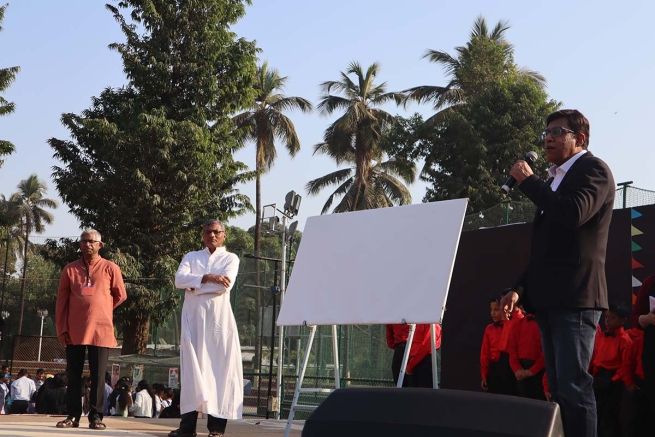INDIA: Salesians Offer Hope, Education to India’s Child Laborers

(MissionNewswire) India has the largest number of child laborers under the age of 14 in the world, according to UNICEF. Many are engaged in dangerous occupations and live life on the streets. In 2010, India passed a landmark law mandating that all children between the ages of 6 and 14 be in school, but according to UNICEF, millions of children remain in the workforce. Full implementation of the law was to go into effect in 2013, but child workers can still be found in almost every industry in India. The problem is enforcing the law, particularly in high poverty regions of the country.
With more than 400 million poor people, or one-third of the world’s poor according to UNICEF, ensuring youth have access to education in order for them to find stable employment at the appropriate age and break the cycle of poverty, is a priority in the country. Although more than 53 million people escaped poverty between 2005 and 2010, they remain vulnerable to falling back below the poverty line.
Lack of educational opportunities in India are often due to issues of caste, class and gender and with 44 percent of the workforce illiterate, there is much work to be done. Less than 10 percent of the working-age population has completed a secondary education and too many secondary graduates do not have the knowledge and skills to compete in today’s changing job market.
At Don Bosco House in Alangulam, located in the Virudunagar District in the state of Tamil Nadu, Salesians are working to educate child laborers in the fireworks and match industry. About 90 percent of India’s production of fireworks takes place in 460 firework factories which employ more than 40,000 workers, many of whom are child laborers.
Youth working in these factories are subject to dangerous working conditions and are paid very little. They are vulnerable to both physical and emotional abuse, respiratory illnesses such as asthma and tuberculosis, skin diseases and chemical burns and in the very worst cases, death due to explosions. Some youth are orphaned and have no option but to work in the factories in order to survive. Others are sent to the factories by poor parents desperate for a little extra money resulting in youth caught up in a cycle of poverty and hopelessness.
“Children who are compelled to work, even for a fraction of the day, are deprived of the education they need to learn valuable skills that lead to stable employment later in life,” says Father Mark Hyde, executive director of Salesian Missions, the U.S. development arm of the Salesians of Don Bosco. “Unfortunately in many situations, children are being forced to work around the clock, with barely enough time to eat, let alone study, and their prospects in life are diminished.”
At Don Bosco House, Salesian staff reach out directly to youth working in the fireworks and match factories as well as other dangerous industries, offering opportunities for technical education. Don Bosco House offers shelter to homeless youth in addition to a program of study that provides support groups, study centers and structured leisure activities to prevent students from dropping out of school and returning to the factories.
Once youth reach a legal working age and have completed their studies, Salesians at Don Bosco House help provide them with opportunities for safe, livable wage employment.
“By integrating intensive training in current social issues such as child labor, human rights, women empowerment and health and hygiene, among other topics, Salesians aim to effect long-term social change while helping youth to create a future where they can attend school and find jobs in dignified, safe and profitable fields,” adds Fr. Hyde.
###
Sources
Salesian Father Thamburaj Don Bosco India – A Brief Report on Sivakasi Fireworks Industry
Salesian Missions – Improving the Standard of Living for Child Slaves
UNICEF – India




